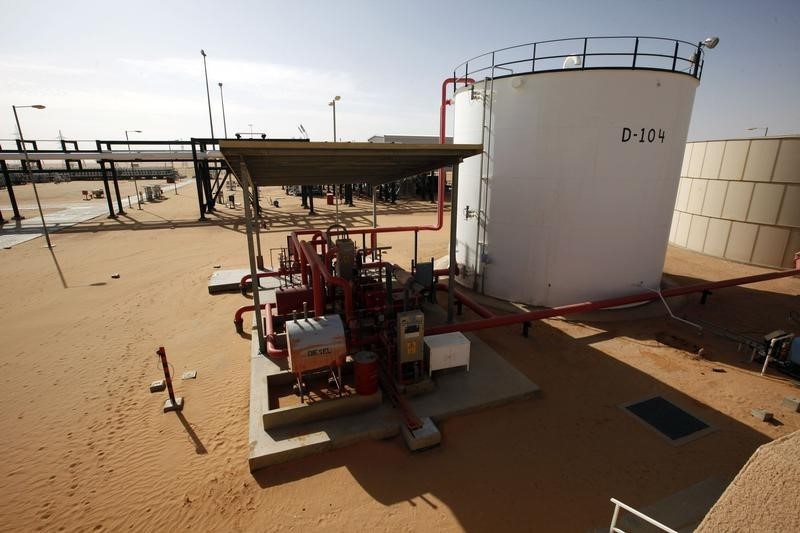Investing.com - Oil prices slipped on Thursday morning in Asia, ahead of an OPEC meeting in Austria later today. The producers are widely expected to agree on an output slash to avoid oversupply, but the decision will likely face headwinds from U.S. President Donald Trump.
Crude Oil WTI Futures for January delivery edged down 0.49% to $52.62 a barrel at 11:20 PM ET (04:20 GMT) on the New York Mercantile Exchange, while Brent Oil Futures for February delivery also fell 0.32% to $61.39 per barrel on London’s Intercontinental Exchange.
Major oil producer Russia is set to join the group, led by Saudi Arabia, in cutting output. Saudi Arabia has proposed slashing output by 1 million to 1.4 million barrels per day (bpd) to balance a global crude glut.
“All of us including Russia agreed there is a need for a reduction,” Oman’s Oil Minister Mohammed bin Hamad Al-Rumhy said on Wednesday, in comments cited by Reuters. Rumhy said the exact volumes have yet to be agreed upon.
Saudi Arabia’s decision is likely to face objections from Trump, who opposes cuts and wants to see oil prices fall further. The pressure is expected to be more intense after Washington backed Saudi Arabia amid its role in the murder of journalist Jamal Khashoggi.
“Hopefully OPEC will be keeping oil flows as is, not restricted. The World does not want to see, or need, higher oil prices!” Trump tweeted Wednesday.
Washington confirmed that the kingdom’s Energy Minister Khalid al-Falih met with U.S. special representative for Iran, Brian Hook, in Vienna on Wednesday, despite Saudi’s denial, according to Reuters.
Iran condemned the White House’s involvement in OPEC output decision.
“Mr. Hook… has adopted an unprofessional, naïve and meddlesome approach. OPEC is an independent organisation and is not part of the U.S. Department of Energy to take orders from Washington,” Iranian Oil Minister Bijan Zanganeh told Shana, the ministry’s news outlet.
The country is also seeking to be exempted from oil output slash due to U.S. crude sanctions.
“We should be excluded from any decision about the level of production in the future till the lifting of the imposed illegal sanctions,” said Zanganeh, cited by Reuters.
